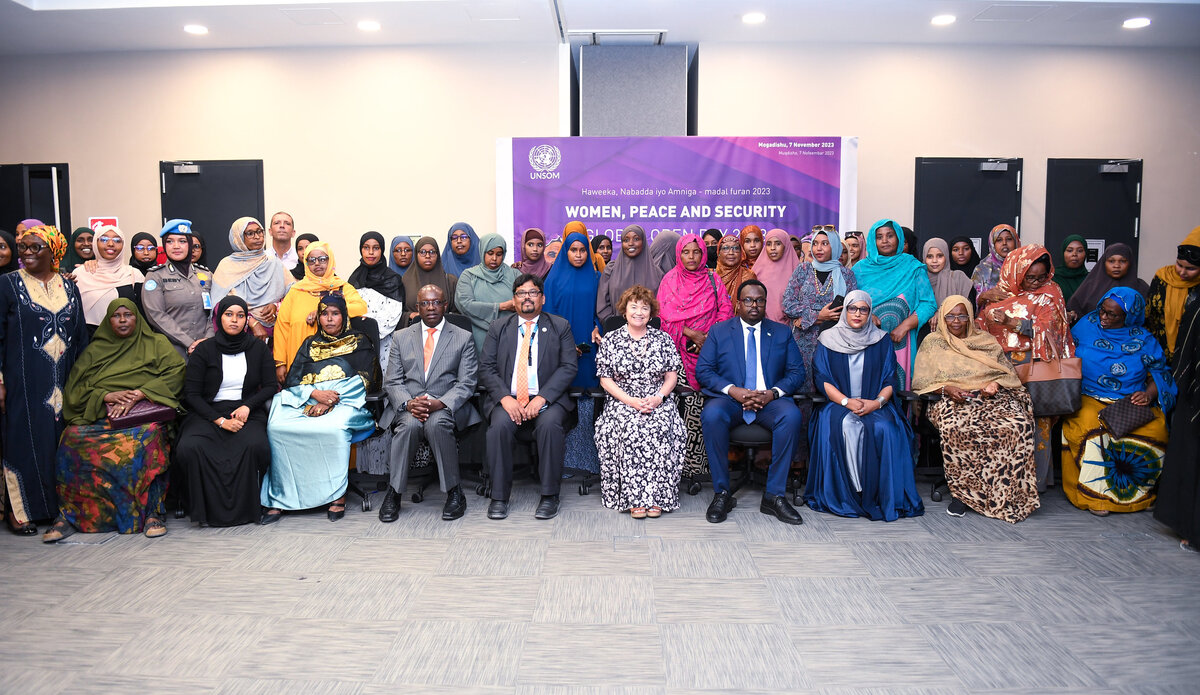Somali Women’s contribution to peacebuilding highlighted at global open day
Mogadishu — Women are playing an increasingly high-profile role in bringing peace and security to Somalia, but more needs to be done to ensure their full inclusion and representation – that was one of the conclusions of a United Nations-backed gathering on the interlinkages among Somali women, peace and security.
“More than fifty per cent of Somalia’s population is made up of women and there is no way you can ignore that fact. They are equally competent as men; they are educated with vast experience to contribute to state-building efforts of Somalia,” said Somalia’s Deputy Prime Minister, Salah Ahmed Jama, at the event in the capital, Mogadishu.
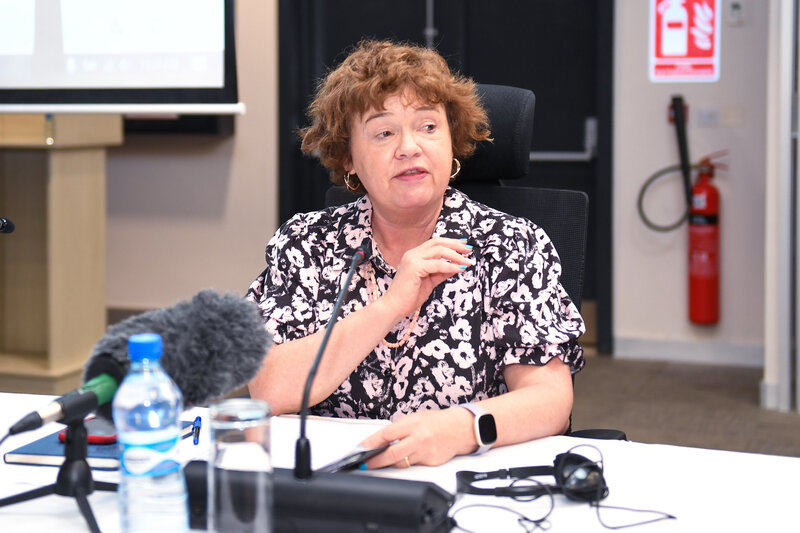
“While there was a slight decline in the number of women parliamentarians from 24 per cent in 2016 to 21 per cent in the 2021/2022 electoral cycle, the good news is that for the first time in Somalia’s history, the First Deputy Speaker of the House of the People is a woman, Ms. Saadia Yasin Haji Samatar,” the UN Secretary-General's Special Representative for Somalia, Catriona Laing, told the event.
The two officials were among the guests at the ‘Global Open Day on Women, Peace and Security,’ which aimed to highlight the importance of women’s role in peace-related prevention and conflict resolution, peace negotiations, peacebuilding, humanitarian response and post-conflict reconstruction.
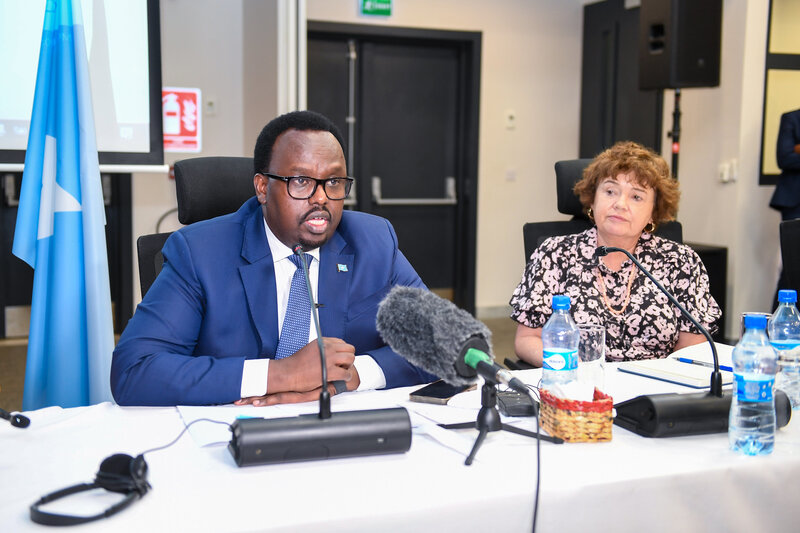
In addition to the Deputy Prime Minister and the UN Special Representative, other participants included the Federal Minister for Women and Human Rights Development, Khadija Mohamed Diriye, federal parliamentarians, civil society, and representatives from UN agencies, funds and programmes.
Participants identified three main areas for increased women’s participation in the near future – the Constitutional Review Process (CRP), the National Consultative Council’s (NCC) proceedings, and women in conflict resolution.
Constitutional talks
The issue of women’s representation in politics drew particular attention in the context of the CRP, with the latter being a key part of the process for Somalia’s move away from its current, provisional constitution.
At the country’s last federal electoral process in 2022, the target of achieving a 30 per cent quota for women’s parliamentary representation was not achieved. The final percentage of parliamentary seats held by women was just 21 per cent, down from 24 per cent in the previous electoral cycle in 2016.
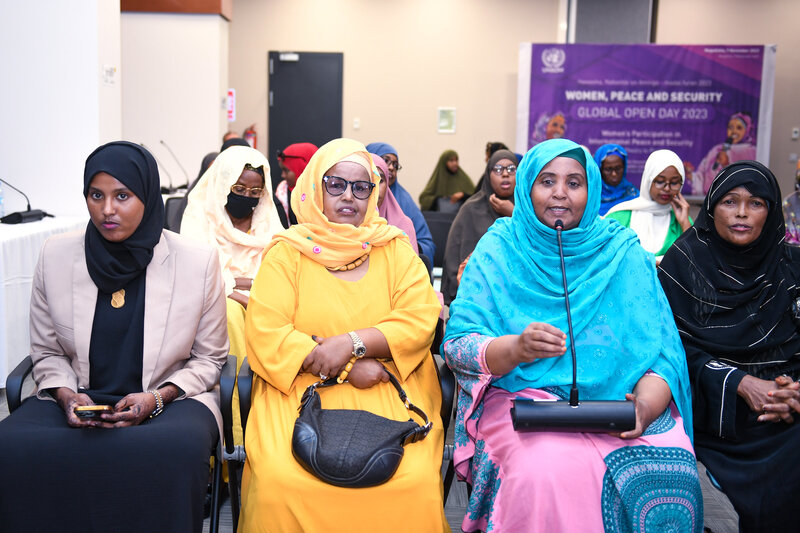
In her remarks, the UN Special Representative called for the CRP to also include women’s representation.
“On the 30 per cent, this has to be enshrined in law. It is great to have the commitment, but without a legally binding commitment, we know from experience in other countries that it is really hard to make progress. The countries in Africa that have done the best have got these kinds of quotas enshrined in laws,” Ms. Laing said.
National consultations
Regarding the NCC, a key decision-making body bringing together leaders from the Federal Government and Federal Member States, the event’s attendees highlighted the need for inclusion and representation.
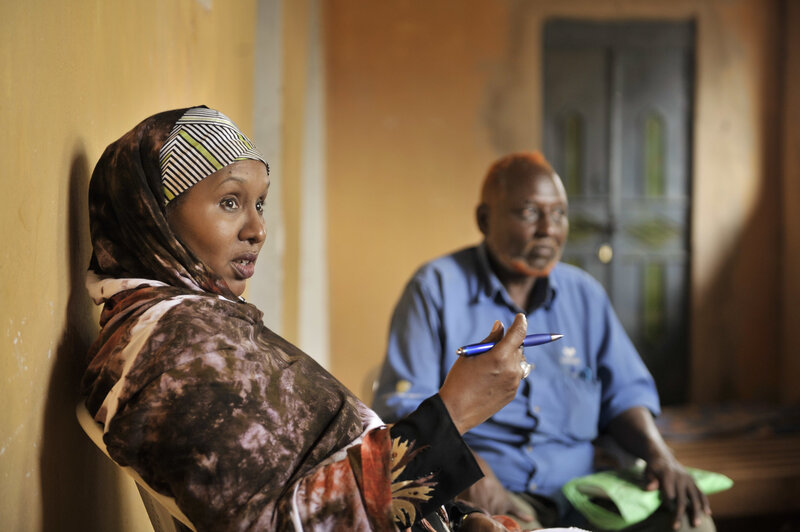
“Currently, the National Consultative Council does not include women. We want women to be represented there, and we are working with the leaders at federal and state levels to achieve that,” said the Federal Minister for Women and Human Rights Development, Khadija Mohamed Diriye.
It was a view echoed by the UN Special Representative.
“The National Consultative Council, with no representation of women, really cannot be seen to be addressing the concerns of the country. So, we absolutely must make sure the voice of women is heard at that top forum – the NCC,” said Ms. Laing, who also spoke to the importance of women’s inclusion at all levels of problem-solving and peacebuilding.
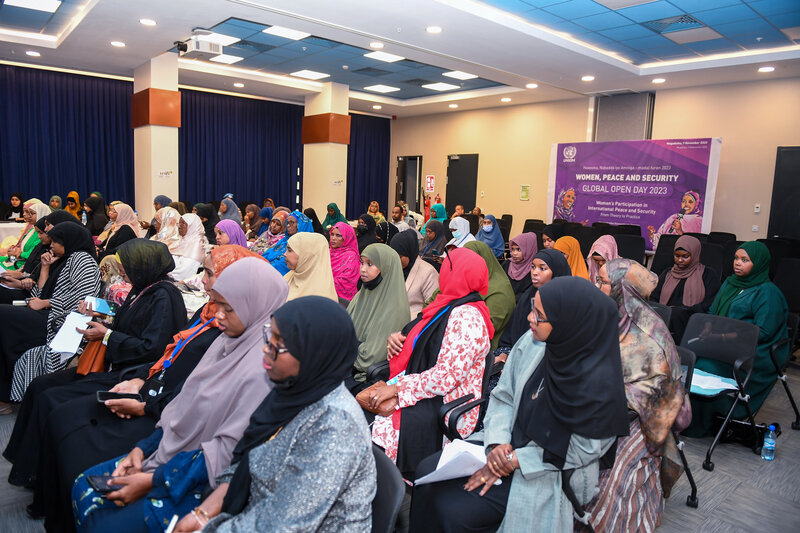
“Women are the root of solving conflicts,” she added. “So, we need you at the grassroots and all the levels up, acting as peacemakers. So, let us also remember to try and hear the voices of women.”
The UN Special Representative reaffirmed participants of UNSOM’s continued commitment to the ‘Women, Peace and Security (WPS) Agenda.’
The agenda was formally initiated by the UN Security Council’s adoption of its much-lauded landmark Resolution 1325, which was adopted on 31 October 2000. The resolution affirmed the important role of women in the prevention and resolution of conflicts and in peace-building initiatives.
In addition to Global Open Days aiming to acknowledge the importance of women’s role in peace- and state-building, the gatherings are an opportunity for women to engage with political leaders, policymakers, international partners and activists to advocate for the implementation of resolution 1325.
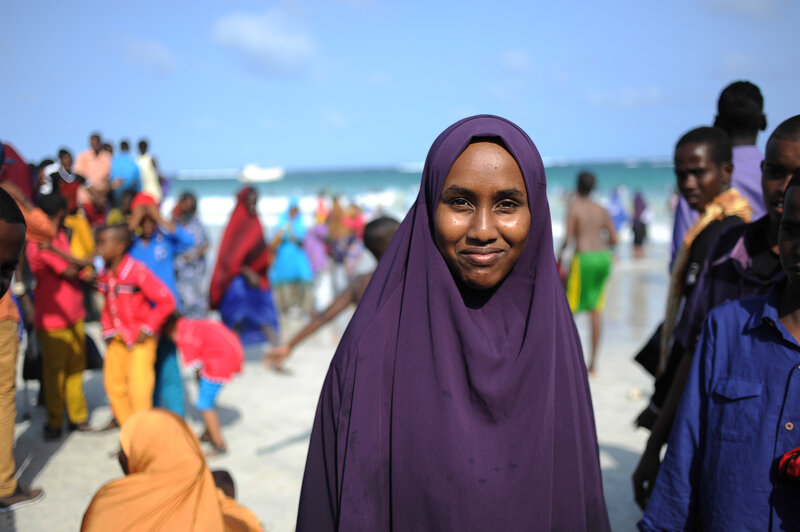
 UN
UN
